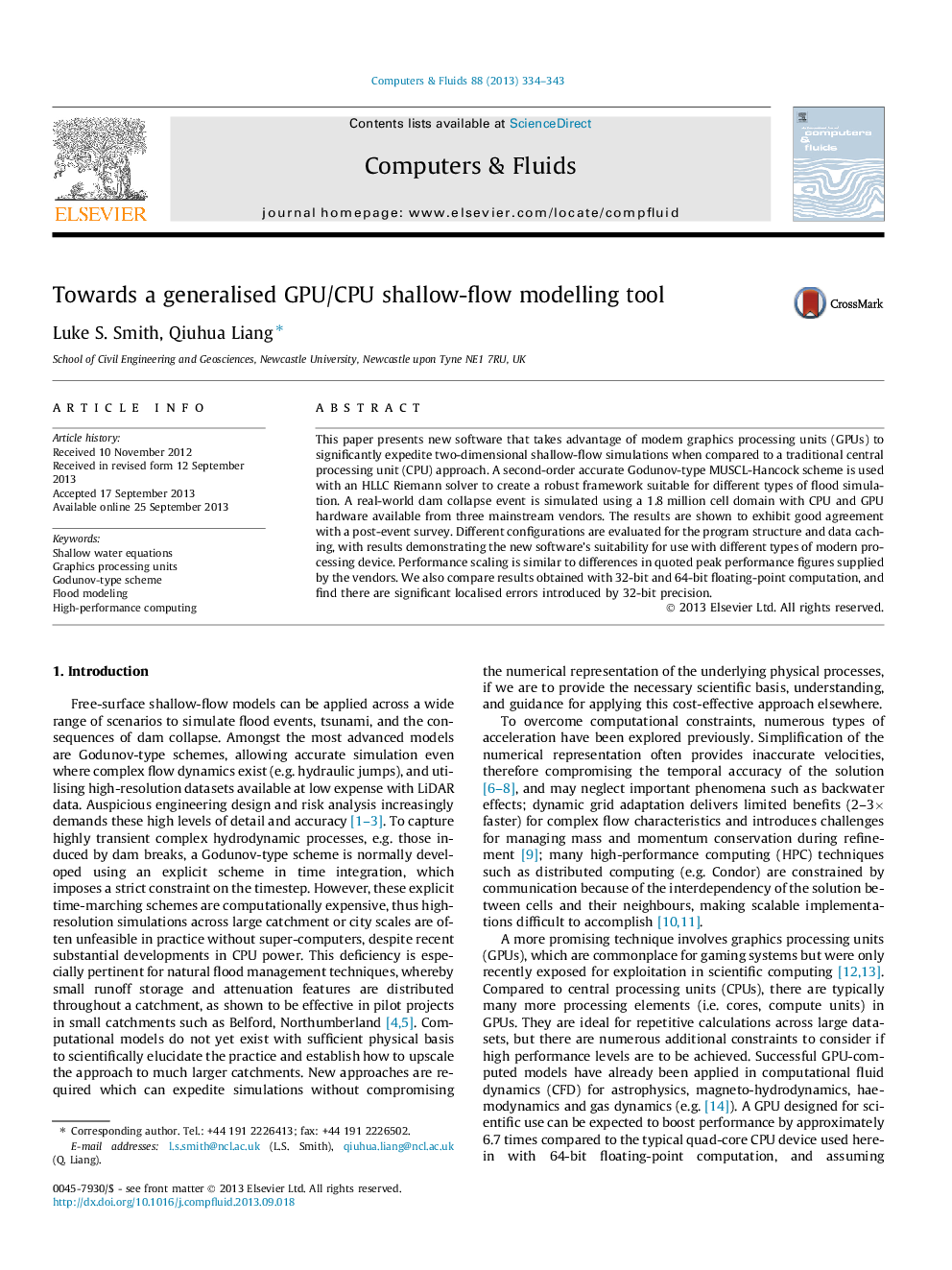| Article ID | Journal | Published Year | Pages | File Type |
|---|---|---|---|---|
| 7157298 | Computers & Fluids | 2013 | 10 Pages |
Abstract
This paper presents new software that takes advantage of modern graphics processing units (GPUs) to significantly expedite two-dimensional shallow-flow simulations when compared to a traditional central processing unit (CPU) approach. A second-order accurate Godunov-type MUSCL-Hancock scheme is used with an HLLC Riemann solver to create a robust framework suitable for different types of flood simulation. A real-world dam collapse event is simulated using a 1.8Â million cell domain with CPU and GPU hardware available from three mainstream vendors. The results are shown to exhibit good agreement with a post-event survey. Different configurations are evaluated for the program structure and data caching, with results demonstrating the new software's suitability for use with different types of modern processing device. Performance scaling is similar to differences in quoted peak performance figures supplied by the vendors. We also compare results obtained with 32-bit and 64-bit floating-point computation, and find there are significant localised errors introduced by 32-bit precision.
Keywords
Related Topics
Physical Sciences and Engineering
Engineering
Computational Mechanics
Authors
Luke S. Smith, Qiuhua Liang,
